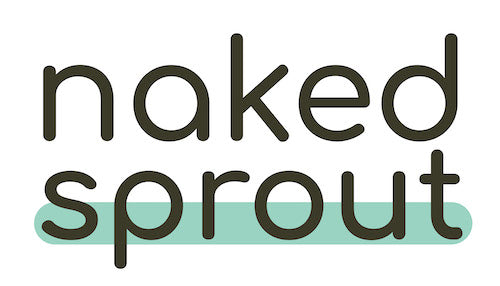Branching out: The Eco-Friendly Benefits of Biofuel

We need better sources of power. Fossil fuels are changing our climate, polluting our air, and unsustainable at the most basic level; they’re going to run out.
Biofuels have emerged as a promising alternative, so this week we’re rolling up our sleeves and getting stuck in to the world of green and growing energy. What is biofuel, what are the benefits of using it, and what does it look like when we use it for manufacturing?
What is Biofuel?
Biofuel is the name given to any kind of fuel that comes from organic sources. Some well-known sources are algae, ethanol, and plant oils, and the use of these kinds of fuels is growing. One example you might have seen yourself are the many bus companies in the UK and around the world who have used fuel made from such unlikely sources as leftover coffee grounds and waste chip-shop oil to power their vehicles.

At Naked Sprout we use two forms of biofuel to make our soft, sustainable toilet rolls, kitchen towels, and tissues. The technical terms for the fuels we use are “biomethane” and “biomass” but don’t be fooled by the fancy words, we’re talking about sheep poo and twigs!
How do these humble by-products contribute to our soft, strong tissue? Read on…
How is Biofuel Produced?
Biofuels grow, rather than deplete. This is one of their main strengths, particularly compared to fossil fuels, but it can also be a disadvantage, as growing anything requires space and resources. The use of biofuel crops like rapeseed, soybeans, and sugarcane can contribute to deforestation and the destruction of valuable habitats, and lead to competition for land and water.
But all is not lost. We can harness the growing power of biofuel without lending further strain to ecosystems by finding fuels that are by-products of agricultural processes that are already well established. Biofuel can be derived, for example, from the huge amounts of waste materials that come from food farming such as wheat straw or leaves, and it can also come from things like orange peel and rice husks, that are generated when food is processed.

This same principle of making use of by-products is at work in our own biofuels, which we collect from agriculture and forest maintenance in the area around our factory.
Naked Sprout is proudly manufactured in the world’s highest-rated tissue factory in Girona, Spain. This region enjoys 2330 hours of sunshine in the average year. This is great for our solar panels, but all that sunshine comes with the risk of forest fires, and so the forests in the region are routinely swept for the dead bark, leaves, and twigs that accumulate on the forest floor. These humble sweepings have no apparent value to most manufacturing processes, and would normally be disposed of, but our factory has a special boiler that is able to harness the combustive potential of this material to make steam. We use a lot of steam in tissue production, making the arrangement a win-win for local forests and for Naked Sprout.

Now for the wooley part of the equation. Our biomethane comes courtesy of the sheep living in the fields that surround our factory. Local farmers have gotten together to form a collective that gathers the droppings from their flocks into a shared slurry tank. Methane forms at the top of this tank, and it is converted into biomethane which we can use in our factory.
How do Biofuels Help Protect our Environment?
To manufacture in a way that is truly sustainable you need to cut carbon emissions and drop fossil fuels. At Naked Sprout we are committed to manufacturing with renewable energy generated at our factory, and harnessing these natural sources of energy is a big part of the equation. Working in tandem with solar panels, wind turbines, and hydro-electric generators, biofuels allow us to power our machines without turning to traditional, polluting methods.
And the benefits go beyond emissions. As we mentioned in our post about our B Corp status, we believe that people and places matter, and that businesses should seek to create more than just profits. Developing sources of biofuel from these by-products means that we are contributing to a circular energy economy, where local stakeholders work together to strengthen energy security and make the best possible use of what we already have.

Conclusion
That’s our round-up of biofuels, what they are, where they come from, and how they help us to make a difference. As we move towards a less polluting, less wasteful future, biofuels provide a great example of how thinking outside the box can lead to practical solutions that benefit our communities and economies as well as the environment.
Sheep poo and twigs are not the most glamorous ways of generating power, but we’ve set ourselves the challenge of making sustainable tissue products, and we’ll take all the help we can get!
Want to join us on our mission for meaningful change? Why not try our toilet rolls, kitchen rolls, and tissues, made from 100% renewable materials and powered by twigs, branches, and some very helpful sheep. Try Naked Sprout today.




